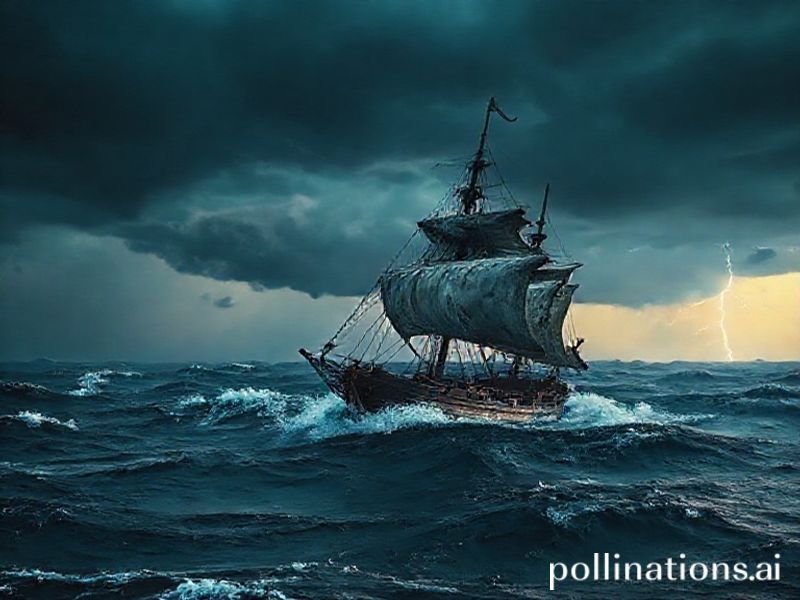The Odyssey: Why This Ancient Epic is Having a Very Modern Moment
**The Odyssey: Why This Ancient Epic is Having a Very Modern Moment**
Alright, gather ’round, internet denizens, because we’re about to embark on a journey—an odyssey, if you will. No, we’re not talking about the latest Netflix binge-watch, though the parallels are uncanny. We’re diving into the ancient Greek epic that’s suddenly trending harder than a TikTok dance challenge. That’s right, folks, *The Odyssey* is having a moment, and we’re here to unpack why.
**A Brief Recap for the Culturally Curious**
For those who didn’t major in Classics (or who, let’s be honest, just nodded along during high school literature class), *The Odyssey* is an ancient Greek epic poem attributed to Homer. It’s the sequel to *The Iliad*, and it follows the adventures of the hero Odysseus as he tries to get back home after the Trojan War. Think of it as the ultimate road trip story, but with more monsters, divine interventions, and existential dilemmas.
**Why is The Odyssey Trending Now?**
1. **Pop Culture Resurgence**: From TV shows like *The Odyssey* on the CW to video games like *Assassin’s Creed: Odyssey*, this ancient tale is being reimagined for modern audiences. Even memes are getting in on the action, with Odysseus’s trials and tribulations being compared to everyday struggles. Who hasn’t felt like they’re battling a cyclops after a long day at work?
2. **Streaming Services**: Platforms like Netflix and Amazon Prime have been dropping adaptations and documentaries about ancient epics, making them more accessible than ever. Suddenly, everyone’s brushing up on their Greek mythology, and *The Odyssey* is at the top of the list.
3. **Social Media and Memes**: The internet loves a good underdog story, and Odysseus is the ultimate underdog. His journey is filled with relatable moments—getting lost, facing obstacles, and just trying to make it home. Memes comparing his struggles to modern life have gone viral, making the epic more relevant than ever.
4. **Educational Trends**: With the rise of online learning and educational content on platforms like YouTube, more people are diving into classic literature. *The Odyssey* is often recommended as a must-read, and its themes of perseverance and homecoming resonate with a global audience.
**Cultural Context and Social Impact**
*The Odyssey* isn’t just a story; it’s a cultural touchstone. It explores themes like identity, homecoming, and the human condition, which are universally relatable. In a world where people are constantly on the move—whether physically or digitally—Odysseus’s journey to return home strikes a chord.
Moreover, the epic has influenced countless works of art, literature, and even modern storytelling. From James Joyce’s *Ulysses* to the Coen Brothers’ *O Brother, Where Art Thou?*, the echoes of *The Odyssey* can be heard everywhere. It’s a testament to the power of storytelling and its ability to transcend time and culture.
**What Makes This Topic Significant?**
*The Odyssey* is more than just a trend; it’s a reminder of the enduring power of classic literature. In an age where attention spans are shrinking and content is disposable, the fact that a 3,000-year-old epic is still relevant is nothing short of amazing.
It also highlights the importance of cultural literacy. Understanding *The Odyssey* gives us a deeper appreciation of the stories that shape our world. It’s a bridge between the past and the present, connecting us to a shared human experience.
**Conclusion**
So, why is *The Odyssey* trending globally? Because it’s a timeless tale that speaks to the heart of what it means to be human. It’s a story of perseverance, resilience, and the journey home—whether that home is a physical place or a state of mind. In a world that’s constantly changing, *The Odyssey* reminds us that some things—like a good story—never go out of style.
Now, if you’ll excuse me, I’ve got some epic adventures to catch up on. Maybe I’ll start with a little show called *The Odyssey*. Who knows? Maybe it’ll be the next big thing.







